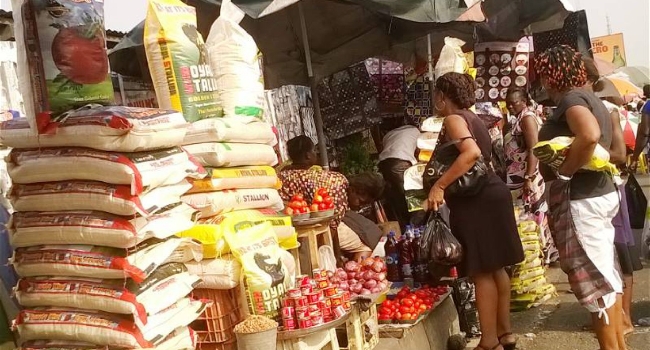Business
Nigeria’s inflation rate hits 31.70% for February, as cost of living soars

Nigeria’s headline inflation has moved up to 31.70 percent in February up from 29.90% in January 2024, latest data released by the National Bureau of Statistics (NBS) on Friday has shown.
According to the NBS Consumer Price Index and Inflation Report for February, the hike represents a 1.80 percent increase from what was recorded in January.
“In February 2024, the headline inflation rate increased to 31.70% relative to the January 2024 headline inflation rate which was 29.90%,” the report read partly.
“Looking at the movement, the February 2024 headline inflation rate showed an increase of 1.80% points when compared to the January 2024 headline inflation rate.”
The data showed that on a year-on-year basis, Nigeria’s headline inflation rate was 9.79 percent points higher compared to the rate recorded in February 2023, which was 21.91%.
“This shows that the headline inflation rate (year-on-year basis) increased in the month of February 2024 when compared to the same month in the preceding year (i.e., February 2023),” the NBS said.
READ ALSO:CPPE lists measures Nigerian govt must take to reverse spiraling inflation
Meanwhile, Nigeria’s food inflation rate in February was 37.92% on a year-on-year basis. This was 13.57% points higher compared to the rate recorded in February 2023 (24.35%), it said.
“The rise in food inflation on a year-on-year basis was caused by increases in prices of bread and cereals, potatoes, yam and other tubers, fish, oil and fat, meat, fruit, coffee, tea, and cocoa,” the report read.
Friday’s figures come amid a push by authorities to combat the rising cost of living in Nigeria. The removal of subsidy on petroleum and the floating of the naira were major triggers of the hike.
There have been protests in several parts of the country owing to that but the government is assuring Nigerians of tackling the challenges.
Despite the rising inflation rates, the governor of the Central Bank of Nigeria (CBN) Yemi Cardoso had earlier expressed optimism of a drop.
“Inflationary pressures are expected to decline in 2024 due to the CBN’s inflationary targeting policy aiming to rein in inflation to 21.4 per cent, aided by improved agricultural productivity and easy global supply chain pressures,” he told members of the House of Representatives in February.
“The Nigerian foreign exchange market is currently facing increased demand pressures causing a continuous decrease in the value of naira.”
Join the conversation
Support Ripples Nigeria, hold up solutions journalism
Balanced, fearless journalism driven by data comes at huge financial costs.
As a media platform, we hold leadership accountable and will not trade the right to press freedom and free speech for a piece of cake.
If you like what we do, and are ready to uphold solutions journalism, kindly donate to the Ripples Nigeria cause.
Your support would help to ensure that citizens and institutions continue to have free access to credible and reliable information for societal development.
























